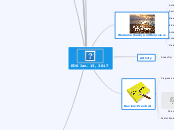
EDS Jan. 13, 2017

Welcome (back) and Overview
Activity
Review of EE
Break
EE and Assessment: Principles and Practices
Activity
Lunch
Divisional conversations and next steps
Activity
SnakeTie!

Review-Preview!
Progressive Knowledge Inventory
Individual
Teams of 2
Teams of 4

AP and PBL
Padlet Exercise

Reflections
Padlet: Where does EDS go from here?

Applications
Work and Discussions by Division
What kind of assessment strategies are we currently using?
What kind of assessment strategies might we consider moving forward?

How can we better integrate our learning activities with our outcomes and our assessment strategies? (review FINK)
How do we know what we are doing is working?

LUNCH!

Assessment and Experiential Education

Definitions
Assessment
"Assessment is a process by which information is obtained relative to some known objective or goal. Assessment is a broad term that includes testing. A test is a special form of assessment. Tests are assessments made under contrived circumstances especially so that they may be administered. In other words, all tests are assessments, but not all assessments are tests."
http://www.adprima.com/measurement.htm
How do we know what we are doing is working?
Evaluation
"Evaluation is the process of making judgments based on criteria and evidence." E-VALUE-ATION
http://tutorials.istudy.psu.edu/testing/testing2.html
Formative and Summative
"Formative assessment refers to a wide variety of methods that teachers use to conduct in-process evaluations of student comprehension, learning needs, and academic progress during a lesson, unit, or course. ... In other words, formative assessments are for learning, while summative assessments are of learning."
www.edglossary.org
Rubric
"A rubric is a scoring tool that explicitly represents the performance expectations for an assignment or piece of work. A rubric divides the assigned work into component parts and provides clear descriptions of the characteristics of the work associated with each component, at varying levels of mastery."
https://www.cmu.edu/teaching/designteach/teach/rubrics.html
Portfolio
"A student portfolio is a compilation of academic work and other forms of educational evidence assembled for the purpose of (1) evaluating coursework quality, learning progress, and academic achievement; (2) determining whether students have met learning standards or other academic requirements for courses, grade-level promotion, and graduation; (3) helping students reflect on their academic goals and progress as learners; and (4) creating a lasting archive of academic work products, accomplishments, and other documentation."
http://edglossary.org/portfolio/
Digital Dumping Ground
Skill, competency specific
Development within a course
Project-based (multiple classes)
Reflection-oriented/transfer
Capstone
Activity
The Maze

Principles and Practices
Planning
Deciding What and How to Assess and Evaluate
A specific learning goal?
A skill or competency?
A final product?
Integration?
Assessment embedded in curriculum design from the beginning

Fink: Integrated Course Design
Structures
Early and often
Authentic Audiences

Example
Capstones
Portfolios
Kidblog
GoogleSites
ThreeRing
Presentations of Learning
Methods
Metacognitive
How to be a successful EE student
Individual and Team accountability
Structure and Choice
Who?
Self
Peer
Teacher
Audience
Ensuring Quality
Exemplars
Rubrics
Iterations
Time
Feedback
SMART
Specific
Meaningful
Accurate/Articulate
Realistic
Trackable
Closing The Loop
Data-> Information -> Knowledge -> Wisdom
Evaluation at course, division, school levels
Turn your data and information into institutional improvement
Keep it simple
Keep it routinized

